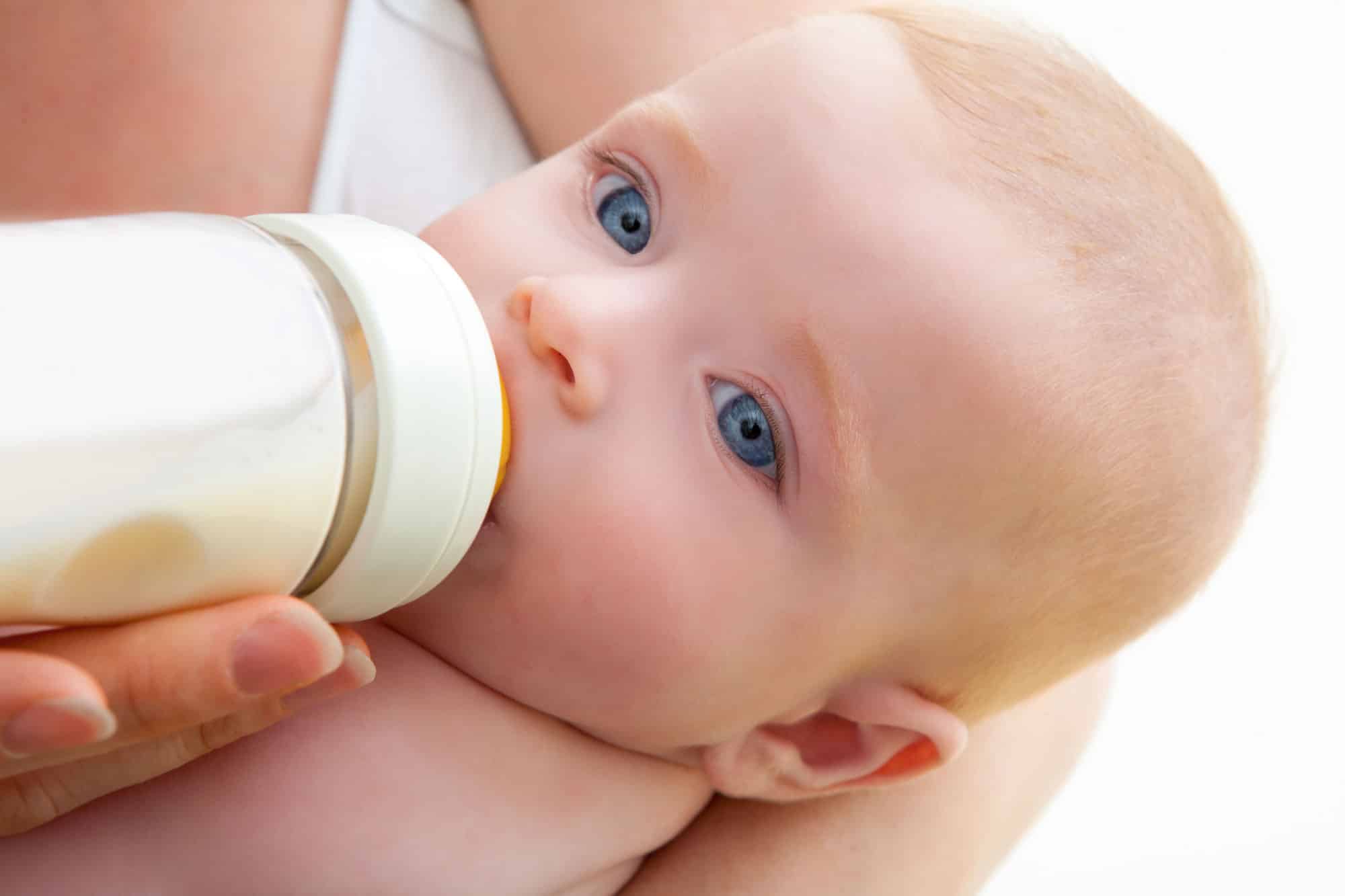New parents are consumed with concerns for their children: which are the best diapers, what kind of schooling will be necessary, and what are the best choices for feeding a baby?
While some of those concerns will take several years to resolve, feeding your baby is not something that should cause an undue amount of stress. A baby’s diet goes through some significant changes during the first year of life, but with a few simple guidelines parents can be confident they are giving their children the very best.
Newborn Foods
When it comes to selecting food for the newborn there is really only one choice: milk. The form this milk takes is up to mom and dad. Parents have three options when choosing their baby’s all-liquid milk diet: breast milk, formula, or an alternative milk product.
Breast Milk
Pediatricians agree that breast milk is the best option for babies. It has all the components needed for the healthy growth and development of growing infants. From the moment of birth, the body begins producing colostrum- the pre-milk, if you will, which provides your baby with anti-bodies and fatty nutrients which prevent substantial weight loss.
When the breast milk comes in around days 3-5 after delivery, it has all the rich calories, vitamins, minerals, and other nutrients your baby requires. In fact, breast milk changes constantly to meet a baby’s changing needs, for as long as mom nurses. Nothing is more adaptable or ideal.
Formula Feeding

Unfortunately, breast feeding is not an option for all mothers and babies. Various situations make nursing difficult: insufficient breast milk supply, nursing difficulties with latch on and pain, and a mother’s working schedule that doesn’t allow for nursing.
Formulas are getting better all the time. New research is unraveling some of the complexities of breast milk. Although formula doesn’t offer the flexibility of breast milk it offers good nutrition for millions of babies and allows dad to be involved in feeding in a way breast feeding doesn’t.
Other Options
Although standard formulas are made on a cow milk base, there are several that are made on soy or denatured proteins. For babies who can’t digest regular formula properly, these options are usually acceptable. Babies don’t get enough nutrition from straight milk products, such as goat milk or regular cow milk, so make sure that you consult with your baby's doctor if your child is having difficulty digesting the formula you selected.
If your baby is still struggling with alternative formulas, there is another option. With the rising awareness of the benefits of breast milk for new babies, breast milk banks have become more common. These institutions provide breast milk to new babies when their own mothers are not able to provide it themselves.
These facilities are not regulated, so parents need to be careful. To find a milk bank, search online. It is also a good idea to do a bit of due diligence and check out sources, complaints, and track records to be certain the milk is properly handled and screened.
In the end parents need to decide which is the best choice for their baby. When making this decision many factors need to be evaluated. Nutrition, convenience, price, and availability all affect the final verdict.
Whatever choice is made: here’s to health, cheers!
When Do Babies Start Eating Solid Foods?
The question of when to transition your baby from milk or formula to solid food is a big one, and there isn't a definitive answer. Technically, you can breastfeed your child for up to two years. Many parents choose to shift their baby to solid food long before this, for a variety of reasons. Convenience and the social implications of continuing to breastfeed after a certain age are up there on the list for many.
A baby can begin eating solid food at six months of age. Feeding solid food to a baby younger than this is not recommended. When you start feeding solid food to your baby, start with single ingredient options. You can easily find these in your store's baby food aisle. Take it slow, waiting a few days to introduce new foods. This is the best way to evaluate your baby's progress.
Taking it slow will also allow you to identify any food allergies. Monitor your baby closely after feeding them a certain food for the first time. If they experience any allergy symptoms, stop feeding that particular food and consult their doctor. By the time a child is seven to eight months old, they should be able to eat a variety of foods.
Before feeding your child solid food, make sure they can hold their head up on their own, swallow food appropriately, and open and close their mouth properly. These are necessities for them to be able to eat solid foods. If your child isn't yet exhibiting these signs, refrain from offering solid food, even if they have reached six months of age.
The image featured at the top of this post is ©LUNAMARINA/ via Getty Images.
